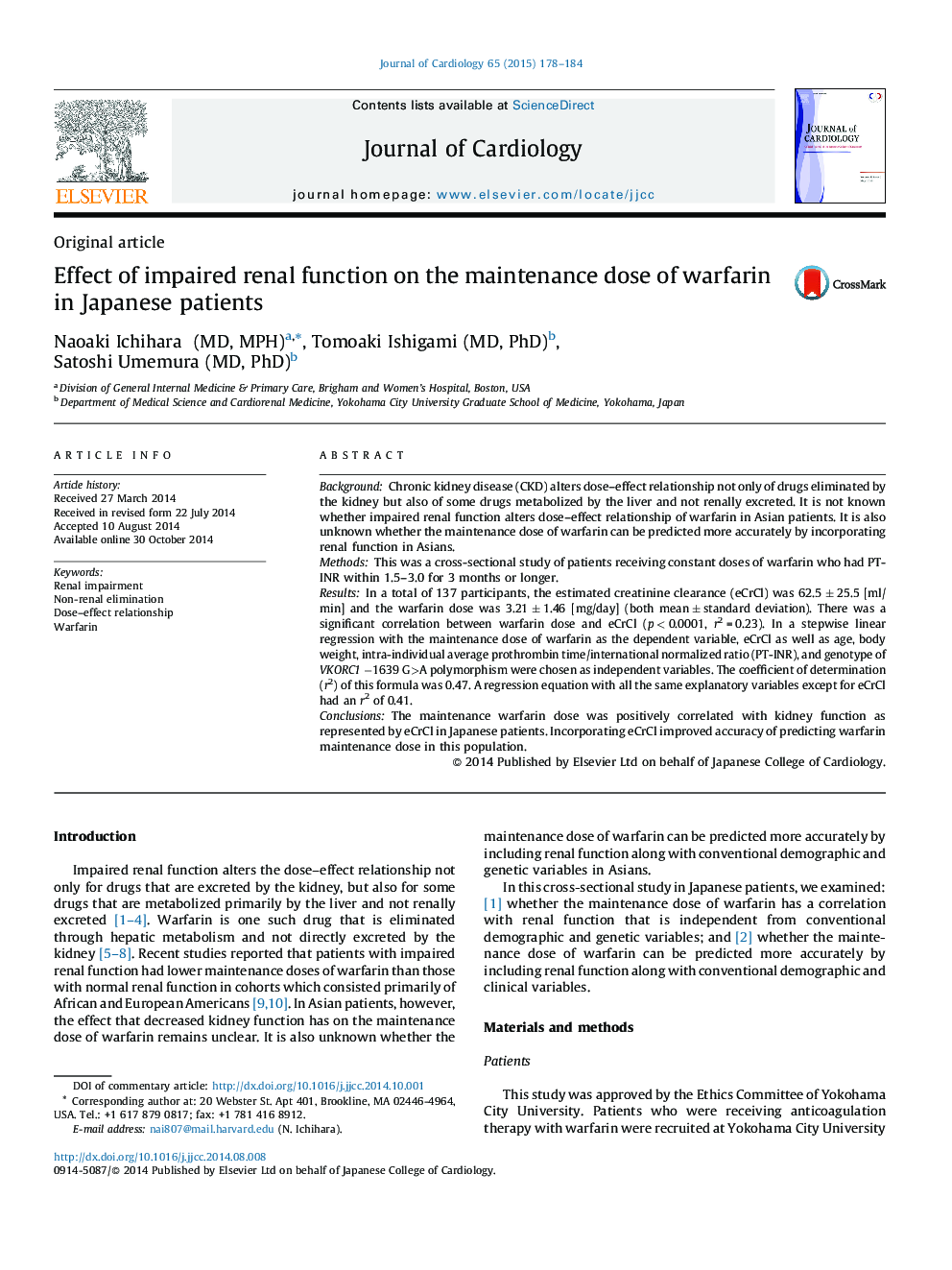| Article ID | Journal | Published Year | Pages | File Type |
|---|---|---|---|---|
| 5983952 | Journal of Cardiology | 2015 | 7 Pages |
BackgroundChronic kidney disease (CKD) alters dose-effect relationship not only of drugs eliminated by the kidney but also of some drugs metabolized by the liver and not renally excreted. It is not known whether impaired renal function alters dose-effect relationship of warfarin in Asian patients. It is also unknown whether the maintenance dose of warfarin can be predicted more accurately by incorporating renal function in Asians.MethodsThis was a cross-sectional study of patients receiving constant doses of warfarin who had PT-INR within 1.5-3.0 for 3 months or longer.ResultsIn a total of 137 participants, the estimated creatinine clearance (eCrCl) was 62.5 ± 25.5 [ml/min] and the warfarin dose was 3.21 ± 1.46 [mg/day] (both mean ± standard deviation). There was a significant correlation between warfarin dose and eCrCl (p < 0.0001, r2 = 0.23). In a stepwise linear regression with the maintenance dose of warfarin as the dependent variable, eCrCl as well as age, body weight, intra-individual average prothrombin time/international normalized ratio (PT-INR), and genotype of VKORC1 â1639 G>A polymorphism were chosen as independent variables. The coefficient of determination (r2) of this formula was 0.47. A regression equation with all the same explanatory variables except for eCrCl had an r2 of 0.41.ConclusionsThe maintenance warfarin dose was positively correlated with kidney function as represented by eCrCl in Japanese patients. Incorporating eCrCl improved accuracy of predicting warfarin maintenance dose in this population.
